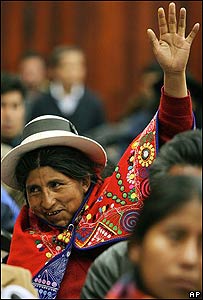 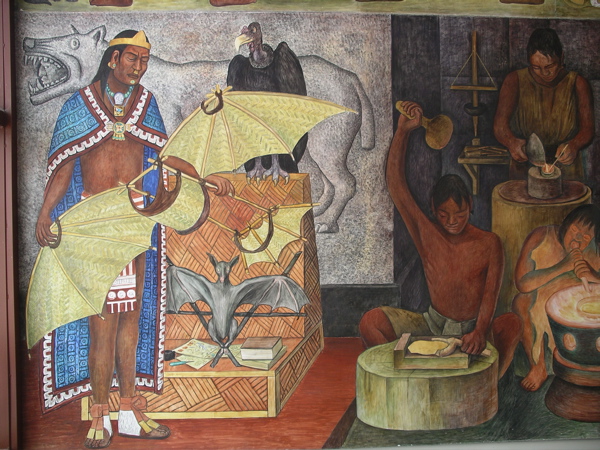 Soc 338: The Indigenous Experience in the Americas Winter
2010
Instructor: Dr. Gonzalo F. Santos Class: 12:20 pm - 2:25 pm, Tue. & Th., Room: Education 127 |
| Dr.
Santos' Office:
DDH-AA205 Office Hours: 10:00 am - 11:00 am Tu/Th Phone: 664-2191 |
| Teaching Assistant: Ms. Melanie Hatfield T.A. Office: DDH-AA204 T.A. Office Hours: By appointment only |
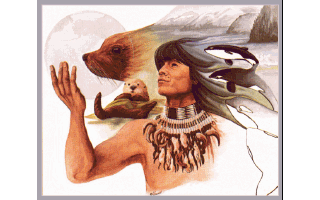 Textbooks:
Textbooks:
* David E. Wilkins, 2006. American Indian Politics and the American Political System. 2nd. Edition. New York: Rowman & Littlefield Publishers, Inc.. ISBN: 978-0742553460.
* Thomas D. Hall and James V. Fenelon, 2009. Indigenous Peoples and Globalization: Resistance and Revitalization. Boulder: Paradigm Publishers. ISBN: 1-5945-1658-8
* Jose Antonio Lucero, 2008. Struggles of Voice: The Politics of Indigenous Representation in the Andes. Pittsburgh: University of Pittsburgh Press. ISBN: 0-8229-5998-4
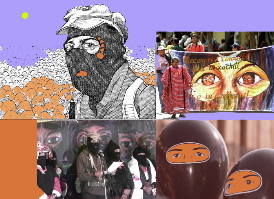 Course
Content:
Course
Content:
This course introduces us to the social,
cultural,
economic and political experiences of modern indigenous peoples and
movements in the
United States, around the globe, and in the Andean region of
Latin
America. We first focus on the rich and complex
Native American
experiences in the United States over the course of the XX Century and
into the new century,
with emphasis on the tremendous social
rebellions of the 1930s and 1960s and the state policies and programs
that prompted and resulted from them, leading to the substantial,
though partial, recovery of various dimensions of Native American
sovereignty, a reinvigorated
indigenous identity and culture, and a mixed economic and political
reality today. We
then analyze the resurgence of indigenous
movements around the world as dramatic
alternatives to capitalist globalization and its neoliberal ideology,
re-asserting, via a variety of mobilizing strategies, and the
undiminished centrality of
indigenous peoples' vision and struggles in the present and for the
future of the world. Two particular areas of study will be the 15-year
long Zapatista Maya rebellion in Chiapas, Mexico, and the social
uprisings in Ecuador and Bolivia, culminating with the election of Evo
Morales, the first indigenous president elected to office in Bolivia's
history.
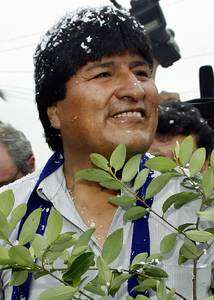 Course Structure:
Course Structure:
The course will be run as a
"semi-seminar": Students will take turns introducing the assigned
readings in each class session, followed by Dr. Santos lecturing and
leading the discussion. If there are two reading assignments, we'll
have a
short break and repeat the process with a different student. Attendance
is, of course, mandatory, and all students must come prepared to
discuss
the readings.
Besides the classroom activities, students will produce two research
papers on a relevant sociohistorical topic related to the course: the
first one on U.S. Native Americans, their movements, economic
conditions, political issues, or cultural challenges, as a whole or
particular nations or tribes, and the second one on an
indigenous people, issue, or movement in present-day Latin America.
Class
Presentations: On a rotational basis, for most of the
classes, groups of 2 students each will introduce, summarize, and
critique each of the
assigned
readings. If you wish to do a PowerPoint presentation that is fine,
just please bring your presentation in a
USB-type memory stick in format "ppt"or "pps" (NOT "pptx"or
"ppsx" please!). When it's your turn
to present, please show up early to set it
up & test it. Or, if you prefer, you may bring overhead slides of
your presentation and use cards.
Each presentation will be evaluated based on: (a) the descriptive
accuracy and completeness
of the summary, (b) the analytical
strength of the critical
assessment,
(c) the quality and pertinence of a final question posed
at the end of each presentation, and (d) the quality of the delivery
(oral & visual).
Reading Assessments: To ensure that everybody come to every
class fully prepared to discuss the assigned readings, students who are
not
presenting must bring to class a written "reading assessment" per
reading (chapter) assigned, each up to two pages in length,
double-spaced, in font 12 text. The reading assessments must be turned in
to Dr. Santos at the end of each class session. No late reading assessments will be
accepted, unless the student has a pre-authorized absence from Dr.
Santos. DO NOT SEND YOUR READING ASSESSMENTS BY EMAIL.
Reading
assessment content: Please always write on top of your
reading assessments your name,
the date, and the title of reading you are
assessing. In contrast to the
presentations, these
"reading assessments" must not
summarize or describe the readings, but solely critically assess or respond to them: express what the you think about them; identify the
areas of strong agreement and/or
disagreement with the author, explaining why, as well as
identify the areas or topics you find most
interesting to discuss, or anything in particular that impressed you
greatly, caused you serious confusion, or surprise. Whatever you write,
explain your specific academic
and/or personal reasons for doing
so. The reading assessment cannot and should not cover every issue
found in the assigned
readings for the day; you must be selective
and demonstrate judgment
in the choices you make to discuss (by the way, early topics are always
suspect!). A very bad assessment will reveal the student read very
little or very superficially, just to do the assignment (it's called
"going through the motion"). A good assessment will demonstrate the
student really read the material and did a serious effort to select and
critically grapple with some of the main issues raised. At the end of
each reading assessment, students may write a
question for class discussion.
Note: Students
presenting on a given day do not
need to submit any reading assessment that day.
Research Papers: Students
will also be asked to chose two
pertinent historical/sociological topics relating to the contemporary
indigenous
experiences in the United States and Latin America, and do papers on
each, respectively. The
first paper is due on February 18 in class, and the second paper is due
by noon on March 18 in Dr. Santos' office. The students must obtain
approval from
Dr. Santos for their paper topics. You may visit Dr. Santos at his
office during his office hours
posted above.
All papers must be delivered in printed paper and also emailed to Dr. Santos in Word format (".doc" -- NOT ".docx").
Extra Points: Perfect attendance will be rewarded with extra points. Another way to get extra credit is to attend those campus or public events Dr. Santos announces in class and write afterward a two-page report on them. Yet another way is this: there are two general studies courses that students are strongly encouraged to take if they wish to develop their research skills, and if they do (either or both) will receive extra credit in this course: These courses will enable students to develop the necessary competencies to navigate their way around the complexities of researching print and electronic sources. For further information contact librarian Christy Gavin (email: <cgavin@csub.edu>, phone: 661-664-3237).
Introduces students to effective research techniques using Library electronic resources. Emphasis will be placed upon skills necessary for the identification, retrieval, and evaluation of information for general and specific topics. Students will acquire the competencies necessary to develop an effective search strategy and find research materials, including references to journal articles, full text articles in electronic format, government publications, books, and Internet resources.
GST 153 - Research on the Internet (2 units)
Introduces students to the information resources available on the Internet for research purposes Students will develop general knowledge of the Internet, navigation skills, effective search strategy skills, familiarity with Internet finding tools, evaluation methodologies and other Internet research skills.
______________________________________________________________
Plagiarism:
To prevent students from wittingly or unwittingly
engaging in plagiarism, Dr. Santos strongly recommends students to
carefully read and abide by the document CSUB Classifications of
Plagiarism found at: http://www.csub.edu/tlc/options/resources/turn_it_in_help_page.shtml
Anyone found guilty of engaging in plagiarism will automatically fail
the course and be reported to the Office of Student Discipline and
Judicial Affairs for further disciplinary action.
Grading: The class presentation is worth up to 15
points. The research papers are worth up to 25 points each (50
total).
The reading assessments as a whole are worth the remaining 35 points.
The
extra credit students may
receive for
taking the suggested General Studies courses will depend on their final
grade in those courses, and may range from zero to 6 points (up to 3
extra points
per course). Perfect attendance will also be rewarded with 5 extra
points; absences and tardiness/leaving early will be penalized with one
point off per instance. The final
letter grade will be assigned, on a scale of 0 to 100, as follows:
| 94-100 = A | 87-89 = B+ | 77-79 = C+ | 65-69 = D |
| 90-93 = A- | 84-86 = B | 74-76 = C | < 65 = F |
| 80-83 = B- | 70-73 = C- |
Office Hours & E-Mail to Dr. Santos & Ms. Melanie Hatfield
Dr. Santos will generally be available at his office, DDH-AA205, from 10:00 to 11:00 am, Tu/Th. Students are encouraged to come see him or to call him (664-2191) during these times. Please be advised, though, given the large volume of email he receives, that email communication has to be very brief and to the point. Expect an equally brief answer. Clearly identify your business in the subject heading, and make sure to sign off with your full name.
The T.A., Ms. Melanie Hatfield, will be available to meet with you by appointment only, at her office, DDH-AA204. She will be in charge of evaluating the reading assessments and handling email traffic. You may contact her by email at her address above. Again, be brief and to the point, and expect a brief reply, too. If you wish to set up an appointment, you should leave her a phone number where she can reach you - and always sign off with your full name.
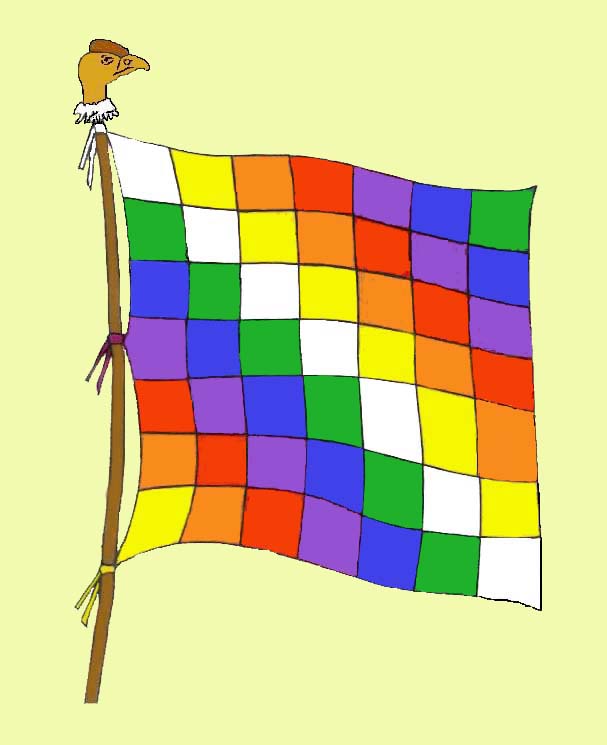 Schedule
of Assigned
Readings
Schedule
of Assigned
Readings 
|
|
|
|
January 7 |
Introduction to the class |
|
| 1
|
Introduction Presenter: Dr. Santos 1. A Tour of Indian Peoples and Indian Lands Presenter: Dr. Santos |
2. Indian Peoples Are Nations, Not Minorities Presenter: Dr. Santos |
| 2
|
3. Actors in Indian Politics Group: ______1_______ |
4. A History of Federal Indian Policy Group: ______2_______ |
| 3
|
5. Indigenous Governments: Past, Present, and Future Group: ______3_______ |
6. Tribal Political Economy Group: ______4_______ |
| 4
|
Wilkins 7. Indian Political Participation Group: ______5_______ 8. Indian Interest Group Activity and Activism Group: ______6_______ |
Wilkins 9. Indians, Images, and the Media Group: ______7_______ |
| 5
|
Wilkins 10. Indigenous Nations and the American Political System Group: ______8______ |
Lucero 1. Constructing Movements and Comparisons Group: ______9_______ 2. Toward a Political and Conceptual Genealogy of Representation Group: ______10_______ |
| 6
|
Lucero 3. Comparing Communities: 1860s-1960s Group: ______11_______ |
First
research paper due
in class Lucero 4. Articulating Indianness: 1960s-1990s Presenter: Dr. Santos |
| 7
|
Lucero 5. Neoliberal and Multicultural Encounters: 1990-2005 Group: ______12______ |
Lucero 6. Strategic Constructivism & Essentialism Group: _____13________ 7. Articulating Utopias, Histories, and Politics Group: _____14________ |
| 8
|
Hall & Fenelon 1. Globalization & Indigenous Survival Group: ______15_______ 2. Indigenous Global Struggles Group: ______16_______ |
Hall & Fenelon 3. Maori in New Zealand & Adevasi in India Group: ______17_______ |
| 9
|
Hall & Fenelon 4. Indigenous Mexico: Globalization & Resistance Group: _____18________ |
Hall & Fenelon 5. American Indian Survival & Revitalization Group: _____19________ |
| 10
|
6. Indigenous Movements: Global Perspective Group: ______20_______ 7. Conclusions & Epilogue Group: ______21_______ |
Second Research Paper due by noon on Thursday, March 18 at Dr. Santos' office |